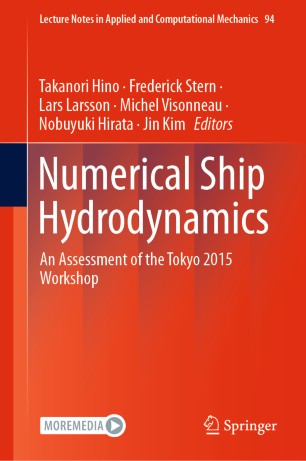

Most ebook files are in PDF format, so you can easily read them using various software such as Foxit Reader or directly on the Google Chrome browser.
Some ebook files are released by publishers in other formats such as .awz, .mobi, .epub, .fb2, etc. You may need to install specific software to read these formats on mobile/PC, such as Calibre.
Please read the tutorial at this link: https://ebookbell.com/faq
We offer FREE conversion to the popular formats you request; however, this may take some time. Therefore, right after payment, please email us, and we will try to provide the service as quickly as possible.
For some exceptional file formats or broken links (if any), please refrain from opening any disputes. Instead, email us first, and we will try to assist within a maximum of 6 hours.
EbookBell Team

0.0
0 reviewsThis book explores computational fluid dynamics applied to ship hydrodynamics and provides guidelines for the future developments in the field based on the Tokyo 2015 Workshop. It presents ship hull test cases, experimental data and submitted computational methods, conditions, grids and results. Analysis is made of errors for global (resistance, sinkage, trim and self-propulsion) and local flow (wave elevations, mean velocities and turbulence) variables, including standard deviations for global variables. The effects of grid size and turbulence models are evaluated for both global and local flow variables. Detailed analysis is made of turbulence modeling capabilities for capturing local flow physics. Errors and standard deviations are also assessed for added resistance (captive test cases) and course keeping/speed loss (free running test cases) in head and oblique waves. All submissions are used to evaluate the error and uncertainty by means of a systematic verification and validation (V&V) study along with statistical investigations.